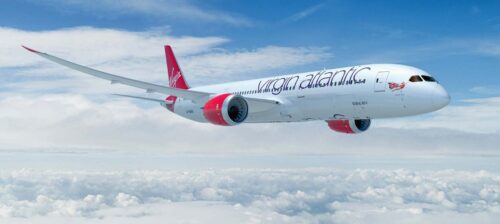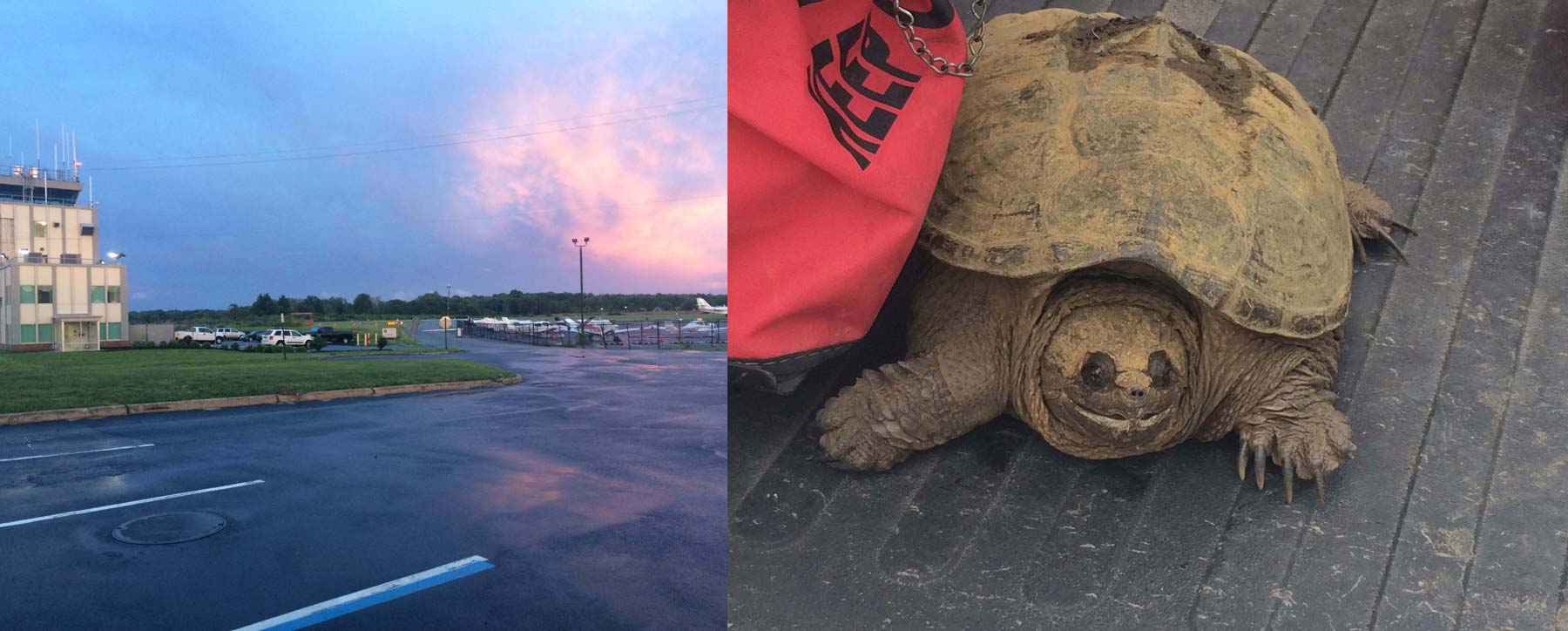
Chasing Contrails: RMI’s Joey Cathcart Takes Off to Cut Airlines’ Climate Toll
On November 28, Cathcart will join Flight100, the world’s first commercial transatlantic flight powered entirely by sustainable aviation fuel, a milestone in efforts to curb aviation’s outsized role in global warming.
If you’re a nervous flyer, Joey Cathcart is probably who you want sitting next to you. He fell in love with flying as a kid. And short of piloting the plane, Cathcart knows the intricate ins and outs of what makes modern aviation tick better than most. He’ll even give up the window seat for you — he prefers the aisle’s extra legroom.
Cathcart got started in the industry early on. With a freshly minted degree in aviation management, Cathcart landed his first jobs in customer service and baggage handling. Later, a three-year stint at the Morristown Airport — a general aviation reliever facility in northern New Jersey — taught him to manage a range of operations from coordinating jet fuel deliveries to clearing the runway of snow, debris, and wildlife, including snapping turtles. Use a shovel rather than risk a bite, Cathcart recommends: “Those things will take your finger clean off.”

A graduate degree in urban and regional planning followed (his capstone project: a study of land use compatibility around Northern Colorado Regional Airport). Cathcart then took his passion for aviation to RMI, where in May 2017 he joined the Sustainable Aviation team as an intern. Now a senior associate on RMI’s Climate-Aligned Industries team, Cathcart will help make aviation history on November 28 as an onboard observer on Flight100, the world’s first flight to cross the Atlantic powered solely by sustainable aviation fuel (SAF).
The London-to-New-York journey on Virgin Atlantic’s Boeing 787 Dreamliner isn’t just going to demonstrate the plug-and-play capabilities of SAF in existing aircraft. It will also be the first real-world trial of RMI’s work to eliminate another planet-warming byproduct of jet-flight: contrails.
Otherwise known as the long, wispy clouds that form when high-heat exhaust from aircraft meets cold, humid layers of air in the atmosphere, contrails are a substantial contributor to global warming (see Grounding aviation’s complex climate toll, below), so preventing them could deliver big benefits.
For now, though, the science of predicting and preventing contrails remains in its infancy. Models used to predict areas of where contrails may form need to be validated to ensure accuracy. Satellites can detect them – but not always. Ground-based imagery can also capture the atmospheric traceries — but only on clear days, and not over oceanic routes. Humidity levels — a key variable in contrail formation — aren’t always known throughout the upper atmosphere.
Grounding aviation’s complex climate toll
Ever year, the burning of jet fuel directly contributes around 2.4 percent of global CO₂ emissions. Add in the impact of contrails, and aviation’s overall contribution to global warming rises closer to 3.5 percent per year, according to recent research.
Virgin Atlantic’s history-making flight advances solutions to both challenges, by studying contrails and scaling up SAF. Swapping out conventional jet fuel with SAF delivers lifecycle emissions savings of over 70 percent. But today, SAF represents less than 0.1 percent of worldwide jet fuel use. That’s why work is racing ahead to further cut SAF’s emissions profile, while developing sustainable formulations and supply chains to scale output and lower costs.
Supplied by Air BP and Virent, the SAF that will power the Rolls-Royce Trent 1000 engines on the Boeing 787 is a blend of 88 percent HEFA (hydroprocessed esters and fatty acids) refined from vegetable and waste oils and fats; the remainder, plant-based SAK, or synthetic aromatic kerosene.
With sponsorship from the UK Department for Transport, the consortium behind the flight alongside Virgin Atlantic includes RMI, Boeing, Imperial College London, ICF, Rolls Royce, and the University of Sheffield.
Even as scientific understanding of contrails advances, Cathcart and his team are helping airlines avoid triggering them in the first place. Techniques include smarter routing and choosing alternative altitudes. Quarterly, RMI convenes the Contrail Impact Task Force, funded by Virgin Unite — with more than 50 aviation-focused organizations — and is actively developing a roadmap to help scale up techniques to mitigate contrails.
As part of Flight100, Virgin Atlantic aims to help improve those techniques. Pilots will be called upon to spot contrails in the sky to help calibrate prediction models under development. With an eye on extending the practice more widely, Cathcart is excited about the implications of more data: “It’s definitely a pioneering process that is likely to be easily replicable.”
Working on climate change is always a bet on the future: that it will be cleaner, fairer, more efficient. Usually that means betting decades ahead, but in this case, Cathcart is excited about the potential speed at which airline practice could shift.

“[Inflight contrail observations] build on existing reporting processes, so it’s something that pilots should be able to get up and running relatively quickly,” Cathcart says. “Going from concept to in-flight testing to scalability has the potential to be quick and to be adopted by a number of airlines to support data collection for verification.”
Once the flight touches down at New York’s John F. Kennedy International Airport, how will he measure success? “For me, it’s incredibly exciting. It’s about demonstrating that this shouldn’t be outside the norm,” Cathcart says. “Success is, more than anything, just showing that this can be done.”
Although the flight takes off later this month, he is still waiting on his seat assignment. This time, Cathcart says he’s okay with sacrificing comfort if it means tracking contrails in real-time. “For this flight? I would love to have a window seat.”
For more on RMI’s efforts to decarbonize air travel and increase demand and supply of SAF, visit our aviation page.